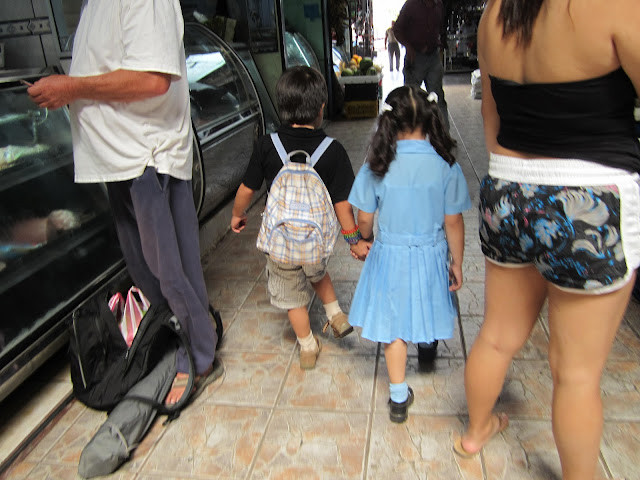Every so often, instead of class we have “outreaches”—opportunities to reach out to the community and give. Yesterday, I went to an orphanage to do some yard work. A group of us 12 girls got dressed in athletic shorts, tank tops, hats, garden gloves, sneakers, sunscreen and tons of water—anticipating the heat. We got to the orphanage and were immediately greeted with questioning looks. Unsure of what the problem was, one of the directors, Dina, finally told us that we were dressed inappropriately to be around children, “take this as a life lesson”, she said. “this is a Christian institution and we have certain standards. Also, many of the children have been sexually abused and seeing boobs and legs brings up too many emotions for them”. Though our pride was slighted by their lack of tact, we understood that they have rules, and we obviously didn’t want to do anything that would be detrimental to the children. So we all called taxis and went home, changed into pants and long sleeved shorts, and headed back to the orphanage.
Once there and eager to start working, we were greeted by a man—the other director. The first thing he said was, “where are all the men?” and “I thought they were sending us at least 1 boy”. He finally accepted that we were all he was going to get, and he talked to us in length about testimony of finding God and starting the orphanage. When he was 20, he had made a wrong and sinful mistake, and immediately after was in a car accident that paralyzed him from the chest down. “God was punishing me”, he said. So he changed his life, moved to Costa Rica and started the orphanage. He kept reminding us of how powerful God is. How everything he does is intentional. How we may not know God now, but in the future when we have broken hearts, or sick children, or when devastating, inevitable events happen, we’ll find him. And he’ll save us.
While the man was talking, I just lost it and started crying. It’s embarrassing thinking about it, and even now it’s hard for me to explain what exactly it was that effected me so much. Part of it was thinking of a God that punishes people for the bad things they do, and rewards them for the good—is that a God I believe in? Part of it was being told that we dressed inappropriately—the need for women to cover every part of them up—can you still tell I’m a girl? Is God ever a “she”? Part of it was the truth in what he said about the inevitable hard things that I’ll encounter in my life—how I wish I knew what those would be, how I’m afraid of what they are. And part of it was the dichotomy of the situation around me—how I so fundamentally disagreed with so much of what he so fundamentally believed in, but how we’re both there—working for the children.
I left with a heavy heart. But I can’t help but think that some kind of God was at work that day. The laughing of healthy happy kids. The labor of raking. The challenge of being around people so different from me, yet so alike.























